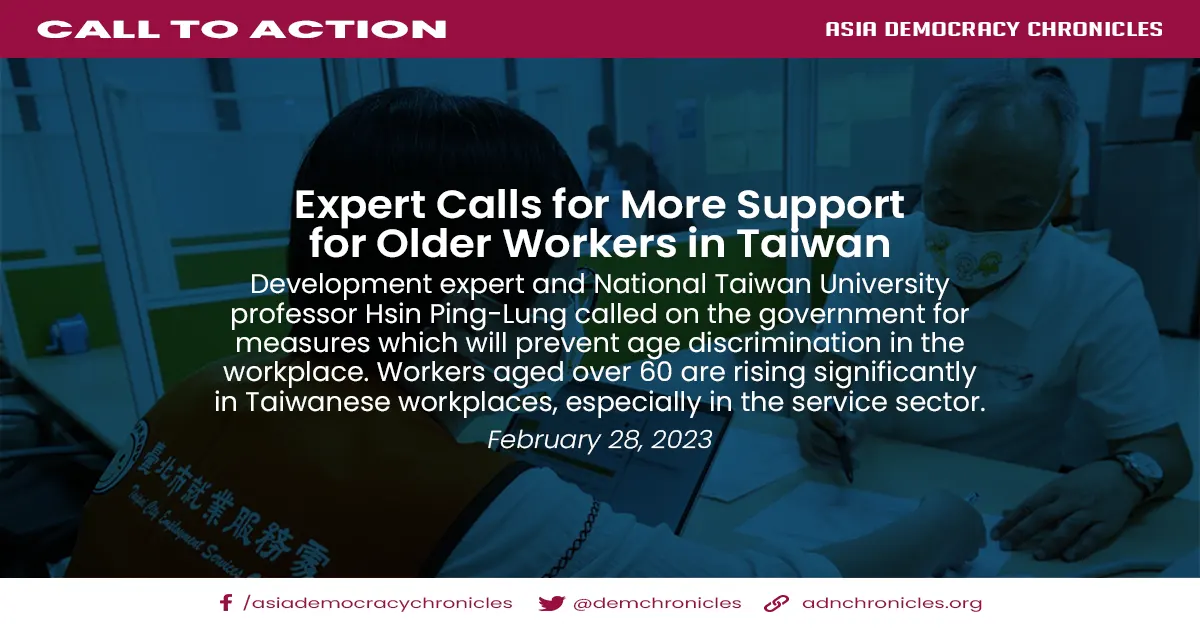|
Getting your Trinity Audio player ready...
|
28 February 2023
Taipei, Feb. 26 (CNA) With the number of workers over the age of 60 growing significantly in Taiwan, a development expert has called for government measures to prevent age discrimination in the workplace and foster workplace environments that are friendly to older workers.
Such measures are urgent given that a majority of older employees currently work in the service sector, according to Hsin Ping-lung (辛炳隆), an associate professor in National Taiwan University’s Graduate Institute of National Development.
“This is not a good sign” because it signals age discrimination in the workplace, Hsin argued, explaining that older people who want to continue working are being forced because of their age to take less-than-ideal jobs, such as low-paying service jobs.
He said that while the government has a law in place that provides a legal basis for subsidizing employers who hire middle-aged and older workers, it should still take measures to prevent employers from casting aside older applicants during the hiring process.
Hsin’s appeal comes at a time when more people aged 60 and above are participating in the workforce than in the past.
In the 12 years between 2010 and 2022, the number of workers in that age group in the workforce has increased from just over 500,000 to 1.031 million, and now accounts for around 10 percent of all workers, according to Directorate General of Budget, Accounting and Statistics (DGBAS) data.
The rise is the result of Taiwan’s low birth rate and rapid aging of its population, DGBAS Census Department Deputy Director Chen Hui-hsin (陳惠欣) said.
In addition, the longer life expectancy of people in Taiwan means that people older than 60 are healthy enough to work, and some want to keep working to buttress their income in retirement, according to the National Development Council (NDC).
Bingo Yang (楊宗斌), a spokesperson for online job bank yes123, agreed with Hsin that age discrimination is real and forces older workers to do jobs that younger people are unwilling to do.
Many of those jobs are in the support service sector, which covers jobs such as building security guards and cleaning people that can have longer working hours in more challenging working environments, Yang said.
Because it is difficult to recruit young people to take up these jobs, employers have turned to older workers to do them, Yang said.
According to Hsin, a better opportunity for older workers may be in the hospitality industry, which is facing major staffing shortages.
“In fact, there is a lot of manpower available,” Hsin said, who recommended filling positions with older workers instead of recruiting workers from overseas.
He further suggested that the government work with businesses to help shape working environments that are friendly to older workers. #



















